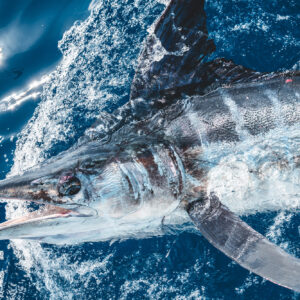LegaSea asked New Zealand First to provide comment on their party’s fisheries policy. New Zealand First provided an overview statement and later updated its fisheries policy.
New Zealand First Fisheries Policy has been updated ahead of the election in September, and will be released shortly. [Updated policy is now online here]
Our 2014 policy was crafted in close consultation with the Recreational fishing sector. Our 2017 policy is largely unchanged, but has been refined and expanded following submissions from some sections of the commercial fishing industry.

In 2014 we stressed that fairness to all stakeholders was a must in the application of any policy regarding the fishery. Paua and lobster fishers rightly pointed out to us that their fisheries could not exist outside what we had generally proposed as a recreational-only inshore fishery, and we have expanded that proposal to accommodate this reality.
In addition, our updated policy recognises that the fishery is a finite resource that is subject to an increasing demand, as the population of New Zealand and the world continues to grow. One of the repercussions of this is that aquaculture and fish farming will also continue to expand, and much if not all of this activity will, of necessity, also have to occur within the inshore, until such time as the advance of technology allows for fish farming further offshore.
The new policy reaffirms that the delineation of the recreational-only inshore fishery, whilst retaining the 12-mile limit as a default goal, will be determined regionally in consultation with all stakeholders. Ongoing mutual distrust and animosity between commercial and recreational fishers is not sustainable. Both sectors must realise that as both population growth, and demand for food, continues to increase, so individual shares, even when access to the inshore is prioritised for recreational fishers, will of necessity have to reduce over time.
In some areas the distance limit of the inshore fishery may vary, or be replaced with a given depth limit. There may also be seasonal variations. However it is imperative that such determinations are reached by consensus and that all stakeholders accept the need for fairness.
Some of the key changes in the 2017 policy include the removal of a maximum fish size limit. This change has been made after submitters advised that such a restriction would make fishing competitions untenable.
Significantly New Zealand First is reiterating our intention to move the commercial fishing sector towards becoming a wholly New Zealand-owned industry. The reflagging of Foreign Charter Vessels has been a welcome step in terms of improving pay and conditions for crews on foreign-owned boats working in New Zealand waters, but the FCVs themselves were only ever intended to be a short-term measure to enable minimally-resourced quota holders to access their catch entitlement.
However FCVs have become a fixture of the commercial sector, reducing opportunities for New Zealand workers and limiting returns for quota holders.
Within the same environment, smaller and family-owned commercial fishing operations are increasingly dependent on leased quota or contract fishing on behalf of larger quota holders.
New Zealand First in Government will require quota holders to either fish their own quota, or relinquish it. We will ensure that economic, regulatory, and business support settings enable fishers to acquire the vessels and technology necessary for such access, regardless of the scale of their operations.
Underpinning this policy and the revisions that have been made to it is New Zealand First’s call for a full Commission of Inquiry into the totality of fisheries management. The QMS has now been in place for thirty years, and whilst it was rightly regarded as world-leading when it was instituted, and has worked well in some regards, the QMS is now in need of a full review and overhaul. Indeed some of the issues that have plagued the commercial fishing industry in particular in recent years can be attributed directly to unintended consequences created by the QMS itself. Dumping and high-grading are two contentious practices for which the Deemed Value provisions of the QMS can be rightly blamed.
New Zealand First believes commercial fishers should be assisted and encouraged to minimise by-catch, but not unfairly penalised for outcomes that are beyond their control, especially when attempts to avoid such penalties directly contribute to the continuation of practices leading to the very same undesirable outcomes that the QMS is supposed to prevent.
More information
I Fish. I Care. I Vote – How does this policy compare to other party’s fisheries policies?
LegaSea’s Manifesto – See how this policy compares to our five policy planks.
The full New Zealand First party fisheries policy.




